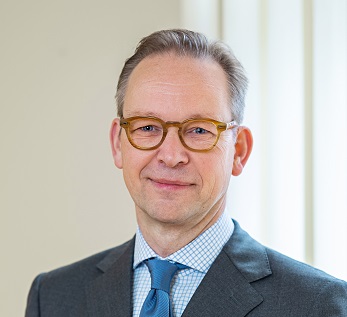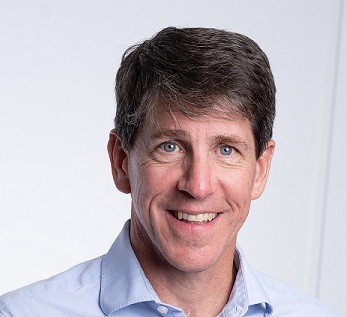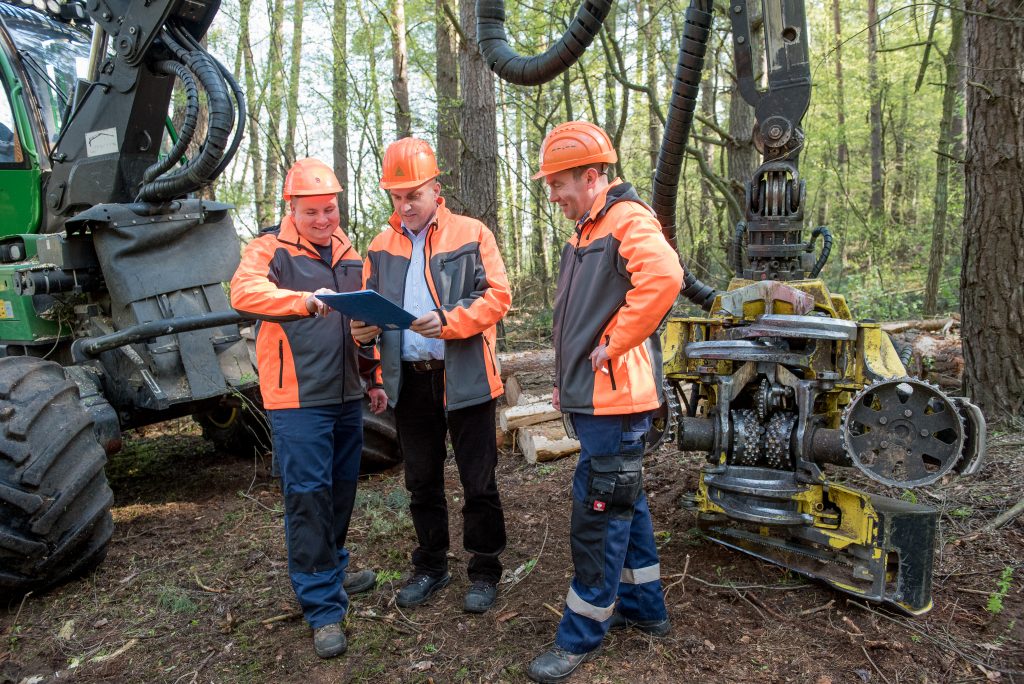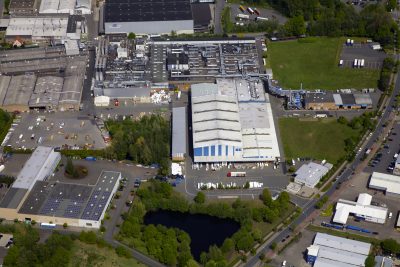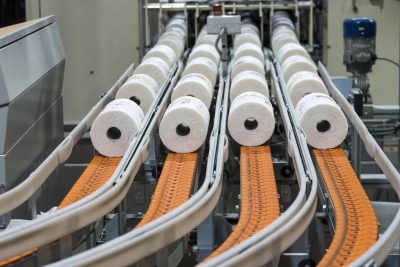Future reports that a nearly 30-year relationship with wood pulp producer, Mercer International, makes Sofidel confident that its products are produced as sustainably as possible
The knowledge that its suppliers sustainably do business is invaluable to Sofidel. As one of the world leaders in the tissue paper production market for hygienic and domestic use, the supply of sustainably produced wood pulp is crucial for manufacturing toilet paper, napkins and kitchen paper. The Canadian Company, Mercer International, is one of the world’s largest producers of pulp across the globe, and it has enjoyed a successful business relationship with Sofidel since 1994.
Transportation and sustainability
Transporting raw materials is one of the main contributors to a manufacturer’s carbon footprint. As a result, Mercer prefers to use trains to transport its product wherever possible. “Wherever we can, we prefer to use train transport over the truck transport,” says Uwe Bentlage, Mercer Managing Director and VP Pulp Sales and Marketing Europe. “In Europe, we adopt a ‘local’ or ‘proximity’ approach regarding sourcing raw materials. For example, our wood sources are located primarily in Germany, where we work closely with suppliers in the surrounding area.” Mercer believes engaging with the local communities where its mills are located is essential for good business as a corporate citizen.”
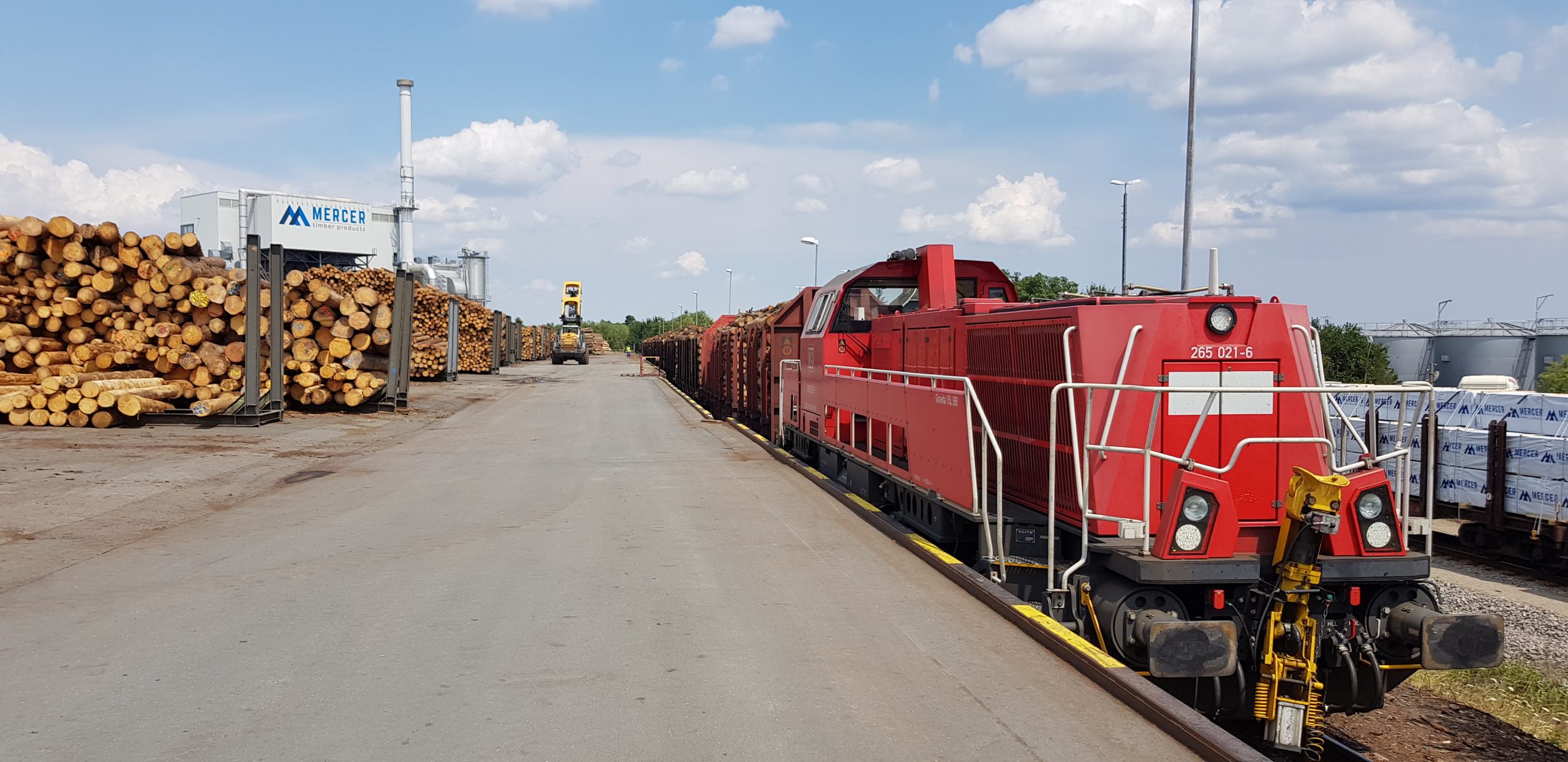
“Mercer received an award last year for train utilization,” Bill Adams, VP of Sustainability and Innovation at Mercer International. “We have introduced electric locomotives, shunting robots, cranes, and log loading equipment to reduce our reliance on fossil fuels. We designed and built dedicated rail trains to transport round wood from suppliers to our facilities. The trains are principally electrically driven and replace trucks and classic railcars that held 40% less volume for the same length of a train; a savings of energy and ultimately cost for us.”
Resource management: the foundation of sustainability
Like any responsible company, Mercer International takes steps to manage its resources to ensure sustainability. “One part of our sustainability initiative at Mercer is maximizing resource efficiency. That can mean water consumption, energy consumption or fiber consumption. Our mills are modern, especially in Germany. Using the best available technology, we are able to minimize our greenhouse gas emissions and use the least amount of chemicals possible,” Adams continues.
“Our mills are net exporters of electricity as we use only a portion of the electricity that we generate from biomass fuel sources. Our investments to be more efficient provide a competitive advantage by utilizing less energy, less wood per tonne of pulp, or less water consumption. So there’s an economic impact as well as the sustainability impact,” says Adams.
The biomass fuel Adams refers to is lignin, the matter left over when the cellulose is extracted for the wood pulp. Lignin is burned in a recovery boiler to produce steam to turn a turbine. The efficiency of the modern plant ensures that more power is produced than the mill requires, thus providing excess energy available for export onto the grid. “It’s considered a renewable energy source because it comes from a renewable natural resource – wood,” adds Adams.
The journey of continuous improvement
Mercer International states in its literature on sustainability that the Company is committed to “doing the right thing every day.” So is ‘the right thing’ in the future for Mercer?
“To maintain our leadership in sustainability, we cannot stand still. We know that continuous improvement is required, and there will never be an endpoint. It’s a journey. It’s a journey for Sofidel. It’s a journey for Mercer,” says Adams.
That’s just how the world works, especially around sustainability and Sofidel wants suppliers to also think about continuous improvement.
“Today we have exceptional performance, for example, in water consumption. But new technologies, approaches, and products will continue to allow mills to consume less water. In addition, we have made the effort set our sustainability targets to 2030 – especially those related to our decarbonization efforts – validated under the Science Based Targets initiative (SBTi). This validation process is extensive, but that’s part of this continuous improvement. As a result, there are higher expectations, not only from our customers but also from society,” says Adams.
“To maintain our leadership in sustainability, we cannot stand still. We know that continuous improvement is required, and there will never be an endpoint. It’s a journey. It’s a journey for Sofidel. It’s a journey for Mercer”
Bill Adams
Important goals for the future
“Maybe the most important goal for companies, institutions, associations, and citizens, is we should collaborate more to build stronger relationships and bonds like those Bill was mentioning. By working together, we can create joint initiatives on those issues that we are all linked to having a better outcome; because sustainability and the management of our resources matter to us all,” comments Sofidel.
“For the future, we have an aspirational goal to have 80% of our wood sourcing coming from certified forests by 2030,” concludes Adams. “We already ensure that 100% of our fiber comes from sustainable forests through our due diligence process. Our Mercer team is constantly working with our forest owners and regional governments to understand how we can encourage a higher level of certification for their forests. It will be challenging for us to get to 80%, as many forest owners operate incredible multigenerational sustainable forests, and they may not see the benefits of certification. We continue to engage in discussions and share our perspectives by working with these forest owners. It will be challenging, but we’re committed to continuous improvement through collaboration.”
Further details: For more information, please visit https://mercerint.com/
